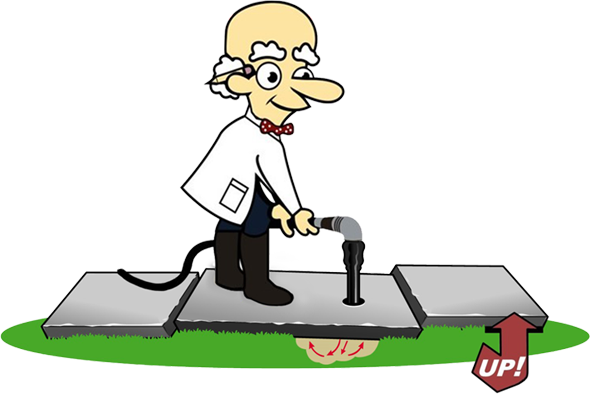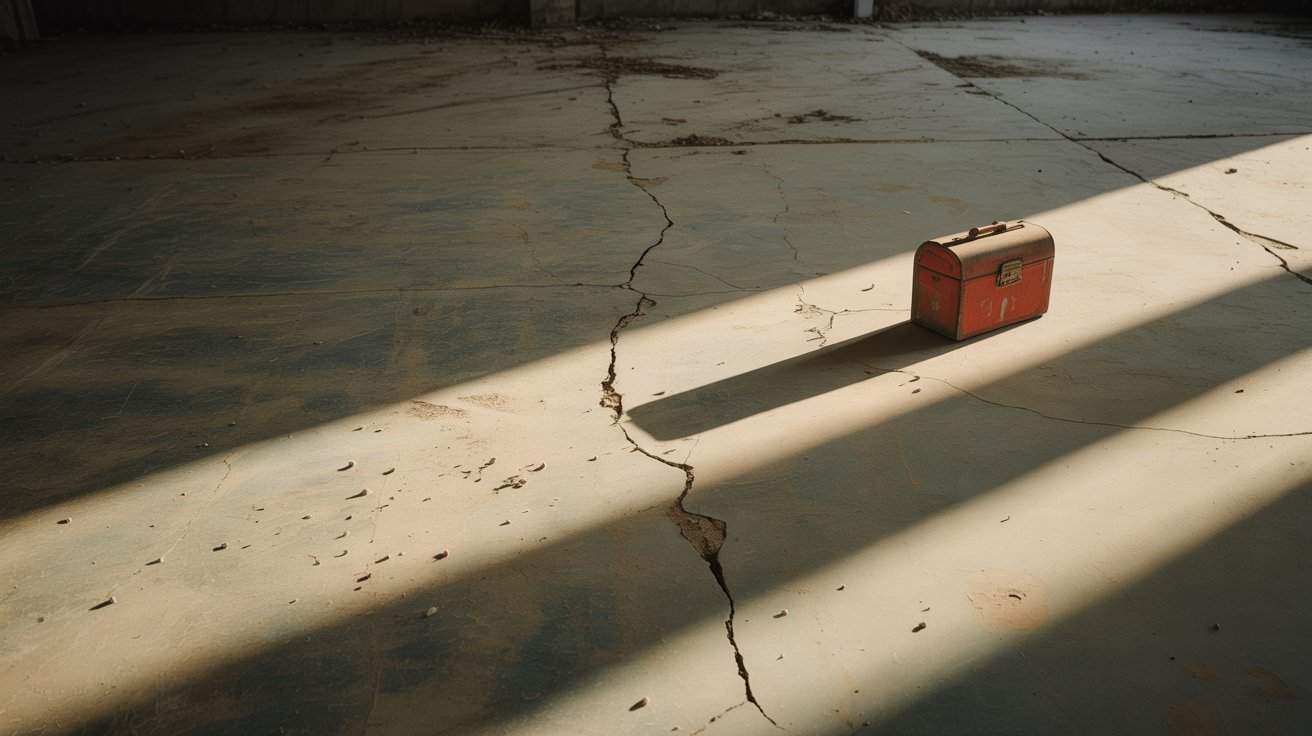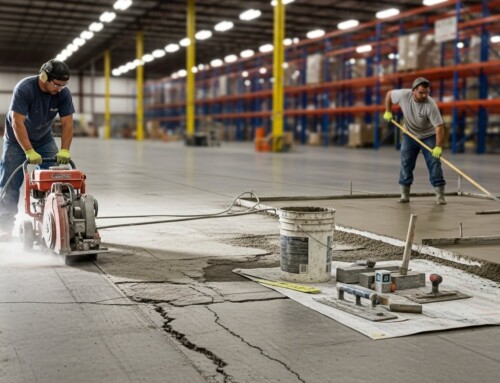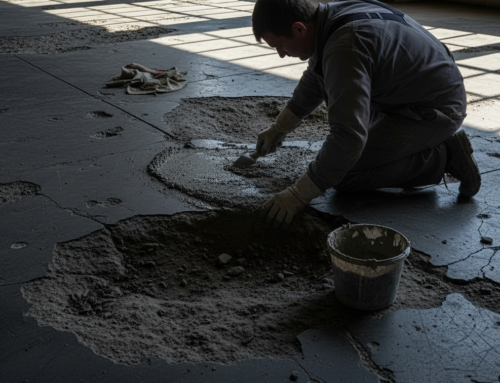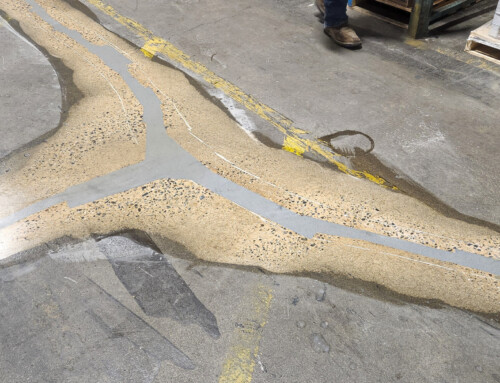IN THIS ARTICLE
Discover the Prevalent warehouse concrete floor defects in NJ Areas and how to fix them.
Warehouse concrete floors in New Jersey often have a range of defects, primarily due to the region’s unique environmental conditions and heavy usage. The right warehouse management strategies can effectively address these common issues. For instance, concrete grinding is a crucial technique for repairing uneven surfaces and extending the floor’s life.
Understanding how to fix these defects can save time and money, particularly when partnering with a reliable contractor with expertise in concrete replacement. Regular maintenance and timely repairs not only enhance the floor’s durability but also ensure the safety and efficiency of warehouse operations. A well-maintained floor prevents accidents and potential liabilities and reduces the need for frequent replacements, all of which contribute to smoother logistics and safer working conditions.
Common Warehouse Concrete Floor Defects
Cracks and Joint Spalling
Cracks and joint spalling in warehouse concrete floors are frequent due to heavy traffic from heavy machinery like forklifts. Cracks can develop from excess loads and thermal stresses, while spalling often arises where floor joints are not properly maintained or constructed. If left unchecked, these issues can worsen, increasing repair costs and disrupting warehouse operations. Concrete spalling repair, through repair services, is a crucial step in mitigating these problems. Moreover, debris buildup complicates maintenance by obstructing access to cracks or rough surfaces.
To fix these defects, it is essential to assess the extent of the damage first. Cracks can often be repaired using cement-based fillers or grout injection, while spalled joints may require patching with natural repair mortars or partial-depth concrete repairs. These techniques form part of a sustainable and effective slab floor repair approach that strengthens the surface without introducing synthetic chemicals.
Regular inspections and proper maintenance help prevent future problems by identifying weak areas early and addressing them before they worsen. Maintaining controlled temperature and humidity levels can also reduce the risk of expansion and contraction that lead to cracks, addressing the need for timely concrete slab repair.
By addressing cracks and joint spalling promptly, you can extend the life of your warehouse floors and ensure safer, more efficient operations.
Sinking and Settlement Issues
Sinking and settlement issues in warehouse concrete floors can pose significant challenges, especially in the NJ area, where soil conditions and groundwater levels can vary greatly. Settlement occurs when the soil beneath a slab compacts or erodes, leading to uneven floors that can disrupt operations and increase the risk of accidents.
It’s crucial to address these concerns through effective concrete slab repair techniques. The root cause of sinking is typically inadequate soil compaction at the time of construction or changes in moisture content, which leads to soil erosion.
Repairing these issues often involves slab floor repair using concrete methods such as cement-based mudjacking, which stabilizes the floor by filling voids beneath it with a natural slurry mix. This technique restores the floor to a level position and strengthens the structural integrity of the warehouse without relying on synthetic materials. Instead of opting for complete concrete replacement, mudjacking provides a more sustainable and cost-effective solution.
To further preserve durability and cleanliness, surface grinding can be used to smooth out damaged areas, reducing loose debris that may interfere with operations. Consistent monitoring of warehouse conditions, combined with a well-designed drainage strategy, helps prevent future settlement problems. Controlling soil moisture levels and routinely inspecting the foundation are essential for long-term stability.
By addressing sinking and settlement issues promptly with environmentally conscious methods, you can ensure smoother operations, reduce equipment wear, and create a safer workspace for your staff.
Surface Wear and Tear
Surface wear and tear are unavoidable in bustling NJ warehouses due to constant foot traffic and heavy machinery operations. This wear can manifest as shallow depressions, scratches, and surface roughness, which affect both the floor’s aesthetic appeal and functional performance.
Over time, these signs of wear can compromise safety by creating uneven surfaces and reducing traction. Concrete grinding is an efficient method of addressing these issues, providing a renewed and level surface that enhances safety and functionality.
To reduce surface wear and tear, eco-friendly concrete solutions such as cementitious overlays, grinding, and resurfacing can be highly effective. These methods restore the floor’s durability without relying on synthetic coatings and use natural or low-impact materials that are better for the environment. Regular maintenance, such as routine cleaning and periodic surface inspections, helps extend the life of the concrete and prevents deeper damage from developing.
For areas with significant wear, concrete slab repair using cement-based leveling compounds can address underlying structural issues without the need for complete replacement. Concrete grinding and polishing offer a sustainable way to refresh worn surfaces by removing imperfections and enhancing surface strength without adding new materials or generating excessive waste.
Including regular inspections in your warehouse operations allows early detection of wear before it worsens. Smart warehouse management and the use of proper handling equipment also help reduce unnecessary stress on floor surfaces.
By choosing low-impact repair methods and staying proactive with floor care, you maintain the performance and appearance of your concrete floors while supporting a safer and more environmentally responsible workspace.
Thermal Expansion and Contraction
Thermal expansion and contraction are key contributors to structural challenges in NJ’s warehouse concrete floors, especially during seasonal temperature fluctuations. As temperatures rise, concrete tends to expand; conversely, it contracts when temperatures fall. This constant shift causes stress on the material, leading to cracks and joint deterioration if not appropriately managed.
To combat these effects, expansion joints are critical. They allow the concrete to move slightly without causing structural damage. Ensuring these joints are in good condition through regular inspections and replacing damaged ones when necessary maintains the floor’s structural integrity. Additionally, choosing construction materials and maintenance solutions that can accommodate temperature changes will significantly reduce related damage.
Regular monitoring of ambient and floor temperatures and implementing climate control systems within the warehouse can further mitigate the impact of thermal expansion and contraction.
By addressing thermal expansion and contraction issues promptly, you can prevent costly repairs and maintain a safe, efficient warehouse environment.
Contact Us For An Effective Repair Solution for your Warehouse Concrete Floor Problems
If you’re facing challenges with your warehouse concrete floors, our team of experts in New Jersey is ready to assist you. With specialized expertise in fixing warehouse concrete floor issues like repairing forklift damage, floor settlement, joint chipping, and uneven floor joints, we provide comprehensive solutions to restore your commercial flooring to optimal condition.
Neglecting these issues can lead to safety hazards and operational disruptions, potentially causing forklift accidents and inventory damage. Our targeted repair solutions help avert these risks, ensuring your warehouse remains a safe and efficient environment.
We understand the critical role that a solid floor plays in your operations, and our services are tailored to meet the unique needs of high-traffic commercial spaces. Whether it’s addressing minor cracks or undertaking extensive repairs, our team is equipped to handle it all with precision and care.
Reach out to us today to discuss your warehouse concrete floor repair needs and how we can support you in maintaining a functional and efficient warehouse environment. Taking prompt action on flooring issues not only saves costs in the long run but also upholds the safety and efficiency of your operations.
FAQs
What repair solutions offer a permanent fix for sinking floors?
A more environmentally friendly and permanent fix for sinking floors is cement-based mudjacking, also known as slabjacking. This method involves pumping a natural slurry of water, soil, and cement under the slab to fill voids and raise the concrete back to its original level. It provides strong, lasting support, uses sustainable materials, and is ideal for large areas like warehouse floors with minimal disruption to operations.
Are there preventative measures for avoiding future defects?
Yes, implementing a regular maintenance schedule, including routine inspections and timely repairs, is crucial. Ensure proper drainage and soil compaction to prevent settlement issues, use protective coatings to guard against wear, and maintain expansion joints to handle temperature changes. These measures help prevent future defects and prolong the floor’s lifespan.
Why does concrete sink and settle in NJ?
Concrete in NJ often sinks and settles due to the region’s varying soil conditions, which can include loose, unstable soils that compact over time. Additionally, fluctuating groundwater levels and freeze-thaw cycles exacerbate soil movement, causing the concrete slabs above to shift and settle unevenly.
- Will You Lose Your Deposit Over Warehouse Concrete Floor Cracks? - December 19, 2025
- Who Pays for Warehouse Concrete Floor Repairs in a Lease – Tenant or Landlord? - December 19, 2025
- Can You Fix Concrete Floor Gouges Yourself? - December 19, 2025
